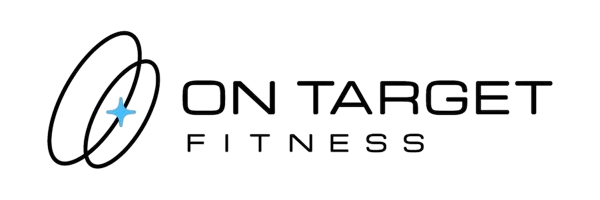Fundamentals of Fat Loss Part IV – Get Plenty of Protein
We are back! In Part I, we talked about an overview of what we need to do to lose fat. In Part II, I covered burning more calories than you take in. In Part III we went over the secret weapon of fat loss: strength training. Today, I will be talking about HOW to up your protein game.
As a reminder, you need to consistently do 3 things to make your body burn fat:
- Burn more calories than you take in
- Strength train 3 days per week
- Get plenty of protein
To start, let’s uncover what protein actually is. Protein is an energy containing macronutrient that is responsible for or has a hand in virtually every process in the body. For our purposes, it is vital in repairing and restructuring muscle and other tissues. But, outside of that it is important in other cellular structures, transport, enzymes, and immunity. It’s an important part of optimizing body processes, including fat loss. Common high protein containing foods are things like chicken, beef, eggs, beans, soy, and dairy.
If you don’t get enough protein, the other two fundamentals of fat loss will break down. If you try to stay in a calorie deficit while not getting enough protein, you will be starving and likely cave to cravings, putting you in a calorie surplus. If you try to work hard at strength training 3 days a week without enough protein, you will be sore, exhausted, and might even get injured because you won’t be able to properly recover from the hard work.
How much protein should you eat? Our baseline recommendation is 0.75g per pound of goal body weight. So, if you weigh 160 pounds, start with 120 grams of protein per day. We use this number because it is approachable, and has some room to move up or down. That way, as you get going you can track how you are doing, adjust, and find your sweet spot as you get better at eating alongside strength training. Note: This recommendation would change with someone who is looking to add size or for someone who has a significant amount of weight to lose, as it would be simply unrealistic.
A common question I get is, “How do I increase my protein?” This usually comes up on the floor or on a coaching call. There are a lot of ways to do this, but here are 3 general concepts: double down on protein based foods you already eat, use the rule of 10, and supplementation.
- Double up on protein you are already consuming. Choose 4 eggs instead of 2 (24 g vs. 12g). 2 palm sized (3oz) servings of chicken at lunch on your salad, versus the 1 you used to eat (48g vs 24g). If you did the same at dinner, you’d be around 120-130g of protein, and those are only the meats and dairies! You still get some smaller amounts from most foods. We used this concept with a client during a check in when it was clear that if she under-ate at breakfast and lunch, dinner would be less controlled. By emphasizing high protein at both of those meals, she was more satisfied during the day and she made better decisions in the evening, as well as better recovery from her morning strength workouts.
- The Rule of 10: Try and ask yourself how you can add another 10 grams of protein to each meal. So, maybe it’s another egg and some nuts. Another chicken sausage, 2 pieces of deli meat. Half a can of tuna. Half of a protein shake. A yogurt on the side. By the end of the day, adding an extra 10 grams of protein at each meal will get you another 30. Over time this will pay huge dividends in conjunction with keeping your calories in check. Maybe this adds some “variety” to your meal, but who really cares? If this helps you hit your protein for the day, it’s going to lead to better results.
- Supplementation. There are tons of options out there, and thanks to modern food technology, most protein supplements taste MUCH better than they used to. We primarily want to get our protein from whole food sources; there are more nutrients, there are less ingredients, and they are generally more bioavailable. But for most of us aiming to hit goals in the gym, supplementing can be a game changer in terms of rounding out our intake. Think about it this way – protein supplements are a way to always have a solid source of protein on hand, whether we are on the go or need a quick meal to get us to dinner. I recommend a high quality, third party tested, cold filtered protein powder like the On Target Nutrition protein we carry in the gym. It’s most practical to take the protein immediately after workouts at the gym. This will fast track recovery and refuel you for the next workout. If you want to add more to it, you can use frozen fruit, yogurt, or other ingredients to blend your shake into a full meal. This can help curb some calories too. All in all, protein supplements are a great low calorie way to get another 20-30g of protein each day.
The SIMPLEST way to know if you are getting enough protein: Let’s get beyond grams and math and make this really simple. If you are getting measurably stronger in the gym (which we track and measure in our system), and you’re building muscle (which we track and measure with our InBody machine), and you are recovering well from your workouts, CONGRATULATIONS you are getting enough protein! Those three things couldn’t be true if you were not getting enough protein.
When you’re ready to see what personal training can do for you, fill out the form at the top or bottom of this page and I will get in touch : )
Our first location serves Portsmouth, Kittery, and the broader Seacoast community. Our new location serves Kingston and the broader southern New Hampshire community. At On Target Fitness, we specialize in strength and longevity training to help you reach your goals. Whether you’re in Portsmouth or Kingston, NH, we’re here to support your fitness journey!



